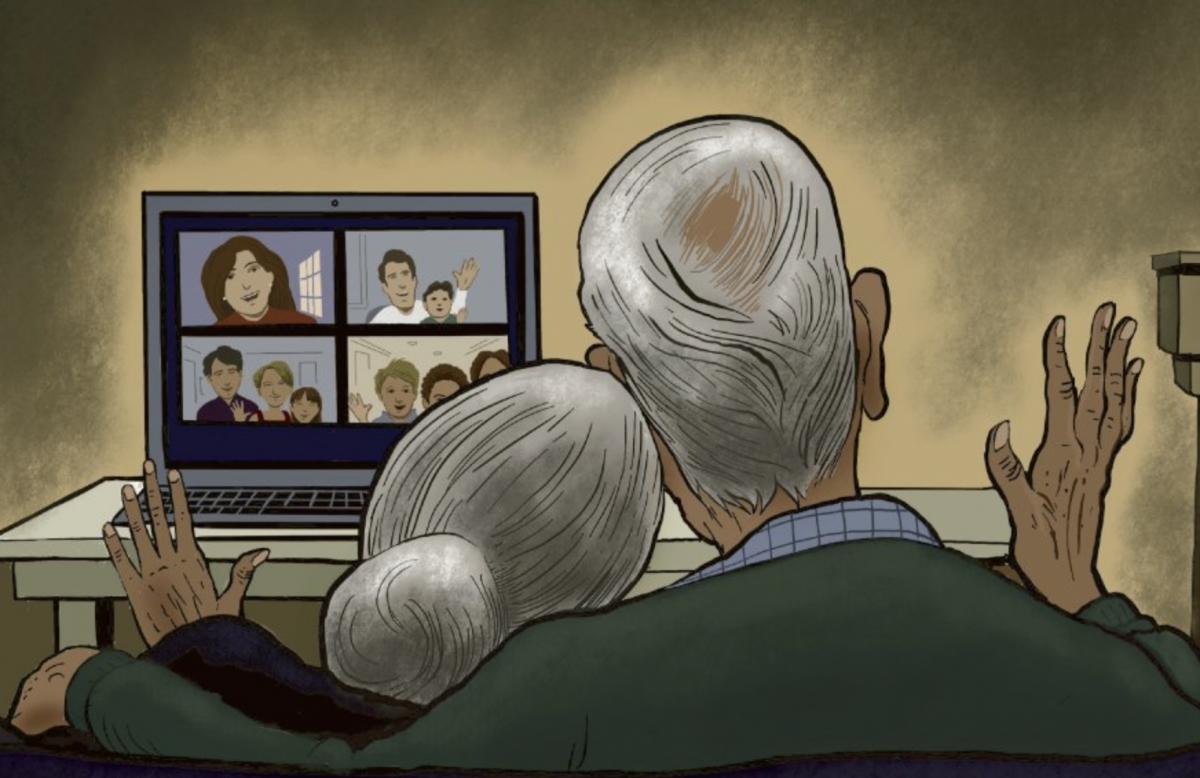Happy Thanksgiving, everyone. My fondest wish for you is a safe holiday with your loved ones–however many or few they may be. If your children are school-age and they’re at home every day, learning online instead of in class, you may be sick–or at least weary–of seeing them constantly.
And that’s OK. They’ll be at the table for Thanksgiving.
“Sick,” of course, is just a euphemism in this case. The last thing in the world you want for you or any of your loved ones is to become ill. It may happen because of an undiagnosed and/or asymptomatic virus one of your guests, either a friend (maybe your niece’s current flame?) or a family member may pass on innocently, but with just as deadly effect.
I know, it’s a total bummer. But way less of a bummer than if the worst were to happen to anyone you love dearly and whose life you may have saved by disinviting them or yourselves to a traditional Thanksgiving ‘gorgy.’ (As in platter-sharing gorge fest.)
My wife Elizabeth and I have disinvited our children to Thanksgiving dinner this Thursday. It will be the first time in their 30 and 34 years, respectively, of sharing time on this planet with us that we will fail to share Thanksgiving as a family. Our story is not incredibly unique, though the reasons for our choice to abridge the sharing of an in-person Turkey Day together may be more mortally relevant than others.
It can be said that both Liz and I have what are widely regarded as “underlying conditions” that make us more susceptible to serious illness or death by way of COVID-19. I had a heart attack about 13 years ago and was diagnosed a year later with atrial fibrillation. However, I’ve never acknowledged its severity because my heart has been beating with constant irregularity for as long as I can remember. (It’s been broken, too. But that’s another story: Remind me some time, it’s pretty funny.)
My wife, however, has Stage 5 kidney disease. If she wasn’t imminently in line for a kidney transplant, she’d need surgery that would enable her to undergo dialysis two or three times a week. Our son, who turns 35 in December, and daughter, who turns 31 the same month, failed tests as donors for Liz. However, our daughter, Rachel, with a relatively universal blood type, qualifies as a “paired” donor whose kidney will save the life of a recipient whose volunteer partner will donate his or her kidney to Elizabeth and, ultimately, save her life.
So, as you can see, for any of us to risk infections that disqualify Rachel as a donor or her mother as a recipient would be intolerably stupid and reckless. We hope and trust that the paired donors matched to Rachel and Elizabeth have as safe a Thanksgiving as we expect to enjoy, virtually.
I’ve been tracking the care package Liz prepared for our children–a loaf of cranberry bread and a baking pan of brownies. We will set a table for ourselves–just Liz and me–along with place settings with our best china and silverware for our absent children. We’ll also pour wine into crystal glasses at their settings–red, white, or sparkling, according to their choice–for a virtual Zoom Thanksgiving toast.
It’s the best we–or anyone in our circumstance–can do.
Thanksgiving menu footnote: Because our celebratory feast is just for two, the main course will be duck. We would be eating turkey till Christmas–when we’ll also miss our children who no longer expect Santa to slide down the chimney. In any case, Liz and I both favor dark meat. So, our Thanksgiving will be ducky, if a bit sparse in family company.
Never mind. We’ll drink an extra toast to our family’s health.
Steve Parks is a writer, husband, and father of two children, one living in Brooklyn and the other in Long Island. Steve and Liz, both retired and living in Easton, dearly miss Tyler, Rachel, and their grandson, Matthew.




Write a Letter to the Editor on this Article
We encourage readers to offer their point of view on this article by submitting the following form. Editing is sometimes necessary and is done at the discretion of the editorial staff.